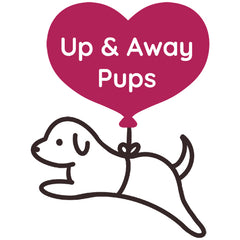Effective Training Techniques to Help Your Miniature Dachshund Thrive
Miniature Dachshunds are intelligent, independent, and full of energy, making training both challenging and rewarding. Common issues include stubbornness, excessive barking, and potty training difficulties. However, with patience, consistency, and positive reinforcement, these traits can be managed. Techniques like crate training, clicker training, and early socialization are essential for success. Mental stimulation, routine, and effective communication will help build trust and obedience. With the right approach, your Miniature Dachshund can thrive, becoming a well-behaved, confident, and loving companion.
A stylish and yet energetic dog, the Miniature Dachshund represents the combination of curiosity, charm, and courage that few other small breeds can match. Its mischievous trait hides a thoughtful mind that survives on meaning and participation. But sometimes the same kind of intelligence is abused by carelessness, and the trait of stubborn independence is evolved.
Patient and organized training can transform your pup's determination into obedience and trust. Effective communication techniques will have a happy, self-confident, and healthy Miniature Dachshund Puppy that is adept at living in any setting.
Common Training Challenges with Miniature Dachshunds
The Miniature Dachshunds are smart, but are stubborn at times. They have immense love for independence, and astounding hunting skills can turn their training sessions into a test for patience. So, here we bring you a few common challenges to which dog owners are exposed.
Stubbornness and Independence
These pups typically possess a determined temperament and traits that make Miniature Dachshund Puppy care highly demanding yet rewarding. They are driven by a strong prey drive and a strong mindset that creates moments of defiance, especially during training, if your commands lack motivation or consistency. Their independent spirit reveals their charm; however, it calls for a structured motivation.
Dog owners should instill persistence and positive approaches to add balance to the obedience. The gentle level of consistency establishes trust and respect, so forceful tactics often lead to adverse outcomes. It helps to turn such determination into an optimal cooperation that involves timing, patience, and an appropriate mode of mental challenges.
Excessive Barking
The instinct of a Miniature Dachshund is often driven by an alert to bark excessively at strangers, noises, or any sort of movement outdoors. This trait is often identical to that of other small dog breeds, like a Yorkshire Terrier. Although they are vocal in nature, which they naturally acquired from their hunting instincts, this trait can prove excessive across any household if care is not taken from an early age.
The early modes of obedience and socialization can bring this trait under control. Try establishing calm reactions with the help of positive rewards and the consistent corrections that help to train your pup to identify when it is right to bark or remain composed.
Potty Training Difficulties
Breaking a small dog, such as a Dachshund, is a patient, structured process. Research by the American Kennel Club (AKC) indicated that 70% more dogs that are trained in a crate successfully learn to housebreak than those that are trained inconsistently. This is the strength of definite routines and reinforcement.
Build reliable habits with scheduled bathroom breaks and reward-based training. Timing and praise consistency can assist your Dachshund in equating the right behavior to some positive results, which will lead to fewer accidents in the long term.
Separation Anxiety
Miniature Dachshunds, being affectionate and social, are prone to suffering when they are left alone over time. According to ASPCA studies, 20-25 percent of companion dogs at some point during their lives develop separation-related stress. Such sensitivity of the feelings necessitates proactive desensitization.
Gradual absences should be introduced, and enrichment toys given to keep them busy. Setting up routine activities makes your Dachshund feel safe even when you are alone.

Looking for a Healthy, Happy Miniature Dachshund?
Miniature Dachshund make loyal, lovable companions. See our available puppies and give your family a perfect furry friend today.
Browse Miniature Dachshund PuppiesProven Training Techniques for Dachshund Success
To train a Miniature Dachshund, one needs to exercise creativity, consistency, and empathy. The approaches listed below provide a powerful structure to promote obedience and enhance the relationship between you and your pet.
Positive Reinforcement Training
Teaching by reward assists in strengthening desirable behavior and enhancing emotional security. This method is also helpful in your capacity to socialize a Miniature or Teacup Puppy, establishing a base in good manners and confidence in unfamiliar surroundings.
Research conducted by Purdue University on canine learning shows that reward-based training enhances the reliability of recall and engagement better than approaches that concentrate on corrections. Make sessions short, lively, and rewarding to ensure your Dachshund is fully concentrated and excited.
Clicker Training for Faster Learning
Clicker training focuses on communication by identifying specific behavior that is deserving of rewards. The studies conducted by the Journal of Veterinary Behavior indicate that dogs that have been trained using clickers show an improvement of 25-30 percent in task understanding as compared to dogs that are trained using verbal cues.
The approach contributes to strengthening positive associations in a short period. The more your Dachshund learns that every click is a success, the more it will be willing to repeat desirable behavior and increase attention and confidence.
Consistent Routine and Structure
Routine provides a stable situation where your Dachshund will flourish. Other breeds, such as the Cavalier King Charles Spaniel, can also enjoy this method because they have caring and versatile characters. Feed schedules, walk schedules, and training schedules minimize stress and confusion.
Regularity in instructions and time means quicker learning. Stable patterns avoid anxiety behaviors and will assist your Dachshund in predicting and knowing what to expect in daily life.
Early Socialization Training
Exposing your puppy to a variety of experiences at a young age creates emotional strength. The results of a study published in Frontiers in Veterinary Science suggest that the likelihood of developing aggression or fear behavior in later life is reduced by 50% in well-socialized puppies.
Being around others, hearing, touching, and seeing other animals helps to develop calmness in a new environment. Each interaction positively reinforced makes your Dachshund more sociable and emotionally balanced.
Crate Training for Discipline and Comfort
A crate is safe and helps control your dog's routine. The addition of dog Sun Protection Tips, including placing the crate in shaded places and good airflow, increases comfort and security.
According to the data provided by the American Veterinary Medical Association (AVMA), when the crates are introduced correctly, up to 35 percent of anxiety-related behaviors can be reduced. The crate is the home of your Dachshund, and it helps in supporting both sleep and good habits.
Mental Stimulation and Puzzle Games
To balance a curious mind, it has to be stimulated. Research in the Journal of Applied Animal Welfare Science indicates that dogs who are mentally enriched exhibit 40 percent fewer signs of stress caused by boredom.
You can exercise the problem-solving instincts of your Dachshund with interactive puzzles, treat-dispensing toys, and sniffing games. Switch activities every week to keep it interesting and offer cognitive stimulation to keep them out of destructive behavior.
Leash Training for Better Walks
The powerful prey drive of a Dachshund also makes it keen on pursuing scents and movements. Early training of Puppy Commands, such as heel and stay, encourages leash manners and minimizes pulling when walking.
According to research conducted by PetMD, dogs that have been trained to adopt structured reward-based methods on a leash exhibit 25 percent enhanced focus and control over untrained dogs. Distractions should be introduced gradually, and calm walking should be rewarded to develop discipline and trust among team members.
Handling Food Motivation Properly
Dachshunds are extremely food-oriented, and this can be both an advantage and a challenge. Limiting portions of the treat allows them to stay enthusiastic and stay within healthy weight ranges. Substitute snacks of high energy content with healthy bites or pieces of kibble.
Alternate food, verbal praise, and play as reinforcements. Diversity will also aid in maintaining interest in your dog and offer long-term sustainability of behavior without overreliance on rewards.
Addressing Digging Behavior
Dachshunds are burrowers, and they will dig by instinct. Instead of squashing it, turn the impulse to less objectionable objects, e.g., sandboxes or digging mats.
Regular exercise and supervised redirection can assist in frustration relief. Later on, your Dachshund will learn to fulfill this natural desire without creating a nuisance in your yard or garden.
Patience and Positive Mindset
A positive attitude is key to the outcome of any training session. Studies in The Journal of Veterinary Behavior have identified that 30 percent more dogs are more likely to succeed in obedience training when trained in non-stressful environments.
Train not to rule, come close. Celebrate the small victories and see a loss as a stepping stone. Trust comes with patience, and you will have a happy, successful relationship with your Dachshund.
Conclusion
Raising a Miniature Dachshund is a process of learning, sympathizing, and patience. They are independent and brilliant, and they do not need to be forced to be positive. Through reward-based reinforcement, social exposure, mental enrichment, and routine schedules, owners can raise well-rounded and happy companions. Not only will the Miniature Dachshund learn to be a good dog with the right combination of patience, structure and love, but the Miniature Dachshund will also become a loyal, confident, and happy part of your family.
🐶 Thinking of bringing home a Miniature Dachshund?
Explore our available Miniature Dachshund puppies or talk to a trusted vet to make sure you're fully prepared to give your pup a healthy start.
View Miniature Dachshund Puppies

